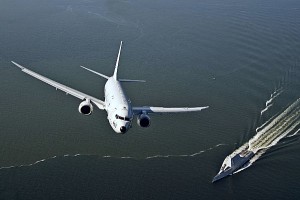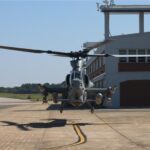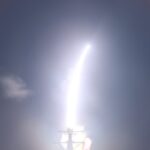
The State Department approved a potential $5.9 billion Foreign Military Sale (FMS) of up to 16 Boeing [BA] P-9A Poseidon patrol aircraft plus various associated systems and support services. The Defense Security Cooperation Agency (DSCA) notified Congress of the sale on June 27. Canada’s P-8A request covers 16 aircraft alongside Multifunctional Information Distribution System Joint Tactical Radio System 5, Embedded Global Positioning Systems (GPS)/Inertial Navigation Systems (EGIs); System Processor Replacements for AN/AAQ-24(V)N Large Aircraft Infrared Countermeasures (LAIRCM) System Processor Replacement…

 By
By 











